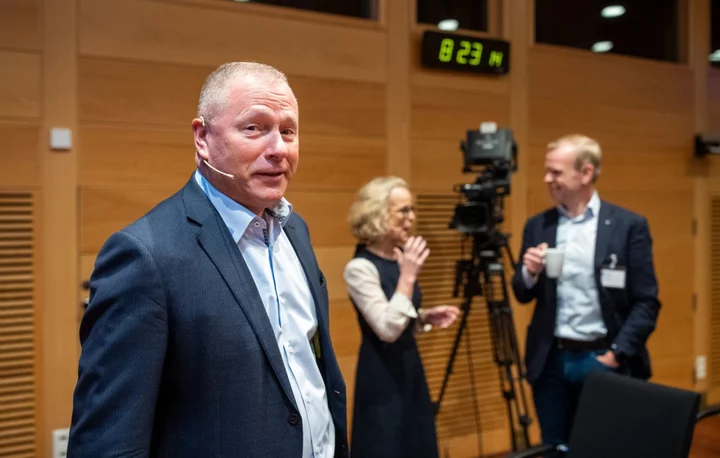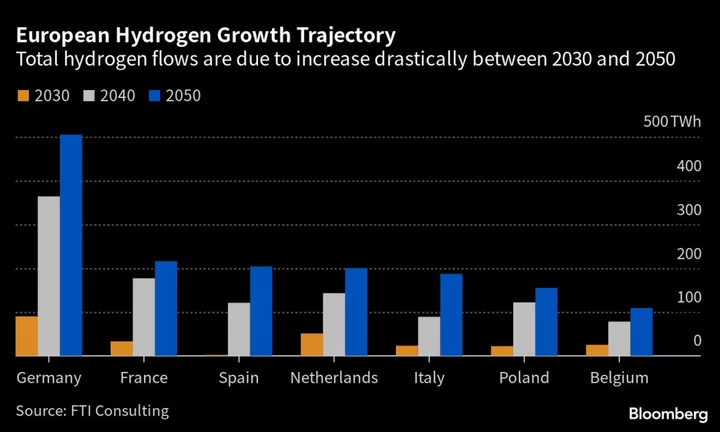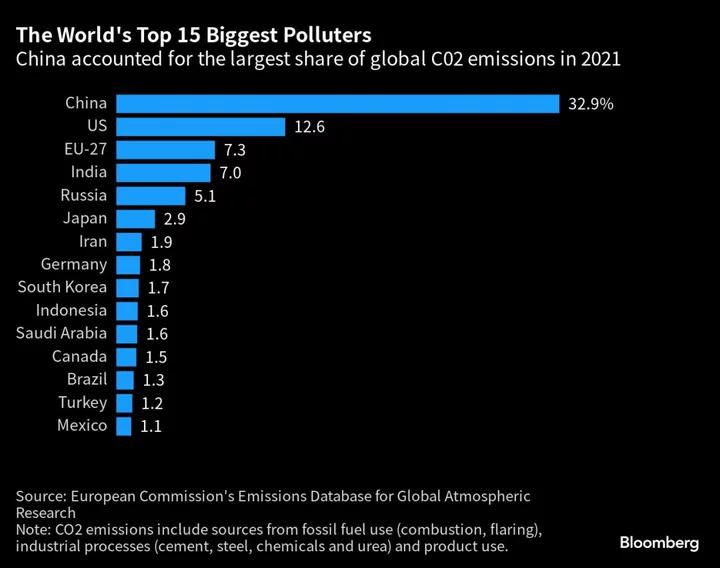Norway’s $1.4 trillion sovereign wealth fund said more companies are honing emissions targets in response to tighter reporting rules and growing awareness as the climate risk outlook worsens.
Some 64% of emissions released by the 9,000 companies in the fund’s portfolio are covered by net zero 2050 targets as of the end of the first half of 2023, Wilhelm Mohn, global head of corporate governance at Norges Bank Investment Management, said at a seminar on climate risk held in Oslo Tuesday. This compares to 58% last year and more than double the percentage in 2020, he said.
“The climate risk outlook has worsened,” Mohn said. “2023 has been a real wake-up call for many — these weather events, these droughts and shortages of water and electricity are reshaping competitive advantages across industries around the world and will continue to do so.”
Read More: Norway Wealth Fund Calls Out Big Oil as CO2 Levels Go Up
The world’s biggest owner of publicly traded companies laid out its first climate action plan in September last year, calling on businesses to set interim targets and outline plans to reduce emissions. That doesn’t just apply to fossil fuel producers, but across high-carbon industries including cement, steel, chemicals, transportation and construction.
“When you own everything there is nowhere to hide,” Chief Executive Officer Nicolai Tangen said, speaking at the same event. The fund is “cranking” up the number of meetings it has with the companies it owns and going forward will increasingly divest “for climate reasons,” he said.
Norway’s wealth fund was created in the 1990s as a vehicle to channel the country’s oil and gas riches into international investments to avoid fanning domestic inflation. The investor has sought to gradually reduce its exposure to the oil and gas industry over the years, initially to offset the dominance of fossil fuels in the national economy and more recently in an effort to align its portfolio with net zero goals.
Guidelines outlined by the International Sustainability Standards Board have been a “game changer,” Mohn said. The ISSB has developed new rulebooks for how companies should report the impact on operations of environmental, social and governance factors. Though voluntary, there is an expectation that the demand for standardized information will lead to widespread adoption, akin to the International Financial Reporting Standards.
“That has really created a standard for disclosure that companies are picking up,” Mohn said. “It is important because it does actually predict, or at least it is linked with, reduced emissions.”









